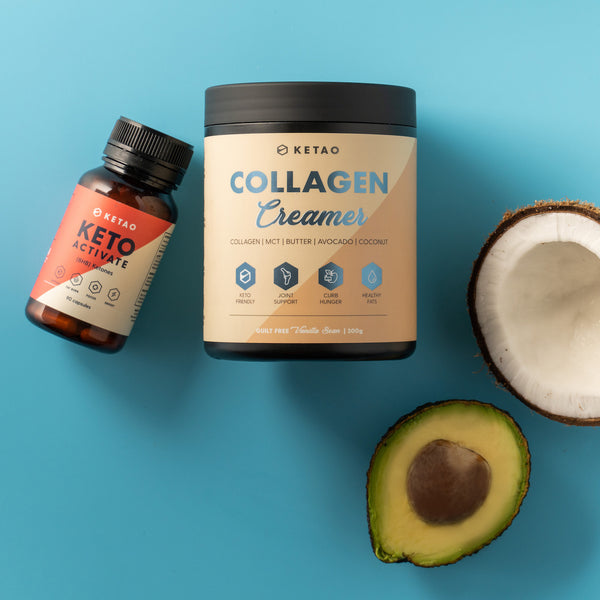Your Cart is Empty
Keto Activate really does keep you in the Keto zone, no feeling grubby or twitchy, just good steady energy and appetite control... great product.

Going prolonged periods of time without food is difficult—and it’s not for everyone.
But the benefits of regular fasting stretch far beyond the slight discomfort, moodiness, and hunger pangs it may cause in the meantime.
Once you get accustomed to intermittent fasting, your body adapts and it becomes easier and easier, to the point where the clarity and energy you experience is actually enjoyable and worth it.
How’s that sound for enticing…
And those aren't the only benefits you get from fasting.
Intermittent fasting is not a new concept. It's something people have been practicing for decades either due to food scarcity or incredibly nutrient-dense foods that supplied energy for prolonged periods so eating wasn't required.
Simply put, intermittent fasting is the idea of rearranging your eating schedule to restrict food intake for anywhere from 12 to 16 hours over the course of 24 hours.
Your body operates differently when you’re in a fed state versus when you’re in a fasted state. After you eat, your body gets to work processing the incoming nutrients and because there is a readily available energy source of energy from your meal, your body will use that fuel first. Anything that's left over will be stored for future use.
In a fasted state, however, your body requires energy reserves because there is no incoming fuel. As such, it signals to glucagon (a hormone) that it needs to get to work breaking down stored glycogen.
Liver glycogen (stored glucose) is the first to go before fat burning gets ramped up; that is, the breakdown of stored body fat for energy. Keep in mind that if you're following a ketogenic diet, your glycogen stores will already be relatively low, which means the first line of fuel reserves comes primarily from body fat.
This ‘forced’ reliance on body fat is characteristic of intermittent fasting and ketosis.
But there’s not just one way to “do” intermittent fasting—there are 4, actually.

The type of intermittent fasting you choose to do is completely up to you; it’s about what fits within your lifestyle and works for your body.
Typically, males will have a more successful time fasting from evening to mid-day, whereas female will be more successful fasting from dinner (late afternoon) to morning. This is because male and female hormones operate differently, and overnight fasts seem to affect a women's hormones less doing it that way.
Here are 7 reasons why incorporating intermittent fasting into your weekly (or daily) routine is beneficial for your overall health and well-being:

Because fasting is so beneficial for your health, it seems crazy not to try it, right? And if you're transitioning to a ketogenic diet, fasting is one of the best ways to deplete glycogen stores and get your body into a state of ketosis a bit faster.
But be forewarned, if doesn't exempt you from the keto flu, so be prepared and stay hydrated!
A lot of people consider juice fasts or "cleanses" a form of intermittent fasting, but they're not.
If you're fasting, you want to try your best to stick to water, black coffee, sugar free tea and zero sugar Exogenous Ketones, or cream. If you want to spice up your coffee, 100% pure MCT oil (C8+C10 fats only) is also a great option. As it is digested differently than other fats--it bypasses the digestive process and is absorbed directly into the bloodstream--it won't interfere with being in a fasted state.
And if you're doing any sort of prolonged fast (longer than 16-20 hours), some people may find bone broth or an electrolyte supplement may help to replenish lost electrolytes and maintain proper hydration.
This can be the trickiest thing of all. Because people tend to be a bit past hungry when it comes time to breaking a fast, they often jump to the closest food item around--but don't do it.
You still want to stick to clean keto when breaking your fast. Avoid any of the processed keto snack foods and instead opt for clean proteins, a good dose of healthy fats, and some greens.
Steak + eggs + avocado sound like a good "break your fast" meal?
We think so!
Sign up to get the latest deals, exclusive offers, Keto education & more!

Keto Activate really does keep you in the Keto zone, no feeling grubby or twitchy, just good steady energy and appetite control... great product.